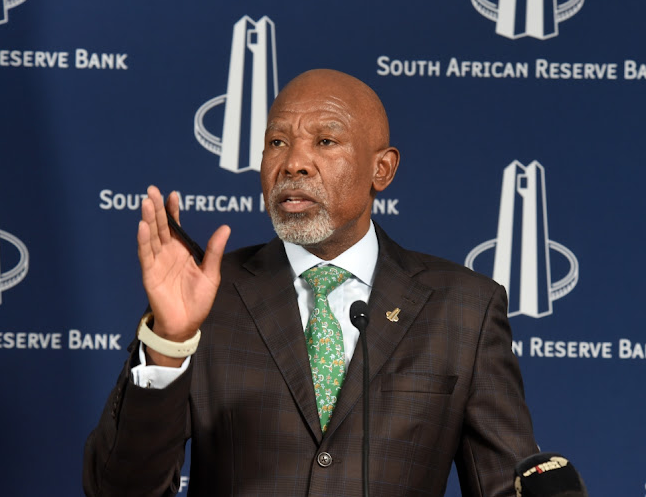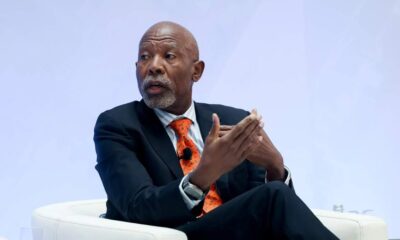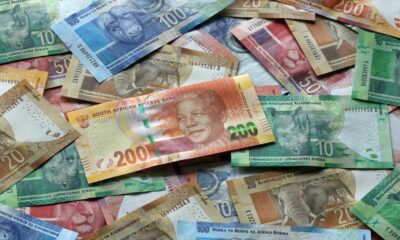Business
Tensions Abroad, Pressure at Home: Why South Africa’s Interest Rate Outlook is on a Knife-Edge

Low inflation gives South Africa breathing room, but global conflict could steal the relief.
For months, South Africans have been hoping that relief at the tills might soon be matched by relief on their bond repayments. With inflation sitting at a calm 2.8% in May and the South African Reserve Bank (SARB) having already lowered interest rates by 100 basis points since September 2024, the mood seemed cautiously optimistic.
But then the missiles started flying between Iran and Israel.
While the fight is half a world away, its economic ripple effects are washing up on our shores and they could seriously derail hopes for further interest rate cuts in 2025.
Calm Inflation, Hawkish Bank
According to Stats SA, inflation in May held steady, even as food costs, especially meat started to tick up. That gave the SARB’s Monetary Policy Committee some breathing space, backing its May decision to cut the repo rate again.
Portfolio Manager Reza Hendrickse of PPS Investments highlighted this in recent commentary, saying the subdued inflation is exactly why the MPC has room to keep easing rates this year.
In fact, the SARB recently revised its inflation forecasts for 2025 and 2026 to 3.2% and 4.2%, respectively comfortably within the 3% to 6% target range.
Oil, the Rand, and the Shadow of War
But low inflation doesn’t live in a vacuum.
South Africans know all too well how international events can quickly hit our wallets—usually via petrol prices. And that’s exactly the threat now looming.
Iran is one of the world’s largest oil producers. Israel’s recent airstrikes on Iranian nuclear facilities triggered a sharp oil price spike—over 10%—and sent global markets scrambling. Though prices have since steadied, the fear of a deeper conflict lingers.
Add to that the weakening of the rand as investors flee to so-called “safe haven” currencies, and the SARB’s usual cautious tone begins to sound more like a warning bell.
Hendrickse says this global uncertainty is precisely why our Reserve Bank tends to be conservative: external shocks can undo months of domestic progress.
Middle East Conflict Meets Mzansi’s Rates Outlook
Sanisha Packirisamy, Chief Economist at Momentum Investments, echoes these concerns. She warns that the Strait of Hormuz—through which a fifth of the world’s oil supply flows—could be a major flashpoint. If it’s blocked, even partially, the price of oil could skyrocket, dragging inflation up with it.
That would leave the SARB with little choice but to freeze or even reverse rate cuts, despite local conditions appearing stable.
“Diplomatic pressure from the US and other global powers will be critical,” Packirisamy said. “A wider war would be catastrophic for energy markets and global growth.”
So far, the market seems to believe escalation will be avoided. Equities have bounced back, helped by the US’s insistence that its role is defensive. Meanwhile, gold, US treasuries, and the dollar have all gained value, reflecting classic “crisis mode” investor behaviour.
South Africans Caught in the Crossfire
While geopolitical chess plays out in the Middle East, South Africans are left watching their bond repayments, hoping global events don’t spike local interest rates again.
There’s a cruel irony to it all: our inflation is low, our central bank is cautious, and yet the very stability we’ve worked for is at the mercy of conflict far beyond our control.
South Africa may be holding its economic line, but its fate—at least when it comes to interest rates could depend on how long missiles continue to fall over Iranian skies.
The SARB may want to cut interest rates again in 2025, but don’t bet the house on it just yet. The global outlook is too volatile, and for South Africa, the cost of borrowing remains tied to the unpredictability of global politics.
{Source: BusinessTech}
Follow Joburg ETC on Facebook, Twitter , TikTok and Instagram
For more News in Johannesburg, visit joburgetc.com



























